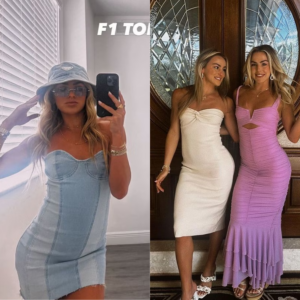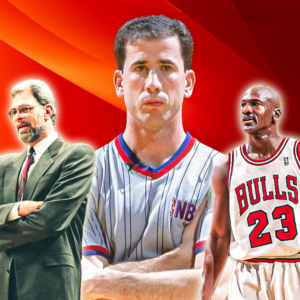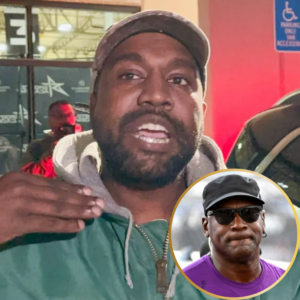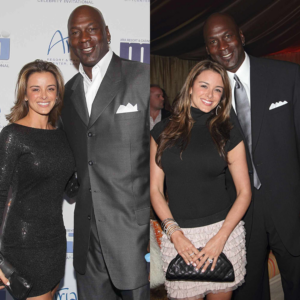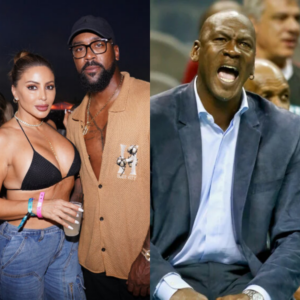Nike Again In Trouble After Sha’Carri Richardson’s Controversy As Caitlin Clark’s Shoe Release Echoes A’ja Wilson’s Disrespect
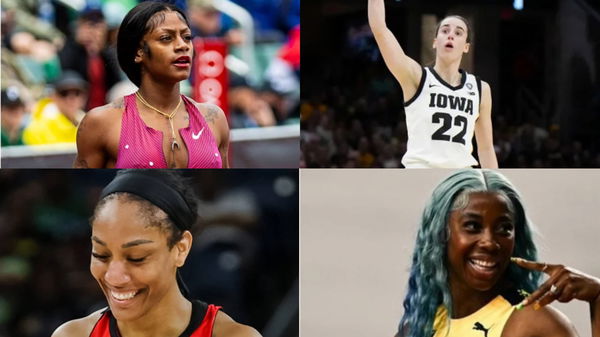
via Imago
Nike has been in the spotlight recently due to the mixed reception of its new USA track and field uniform.
Despite efforts to enhance the Olympic atmosphere, the brand has faced some disapproval.
The brand is currently facing intense scrutiny after the release of Caitlin Clark’s shoes deal, which have been criticized for echoing disrespect towards legends.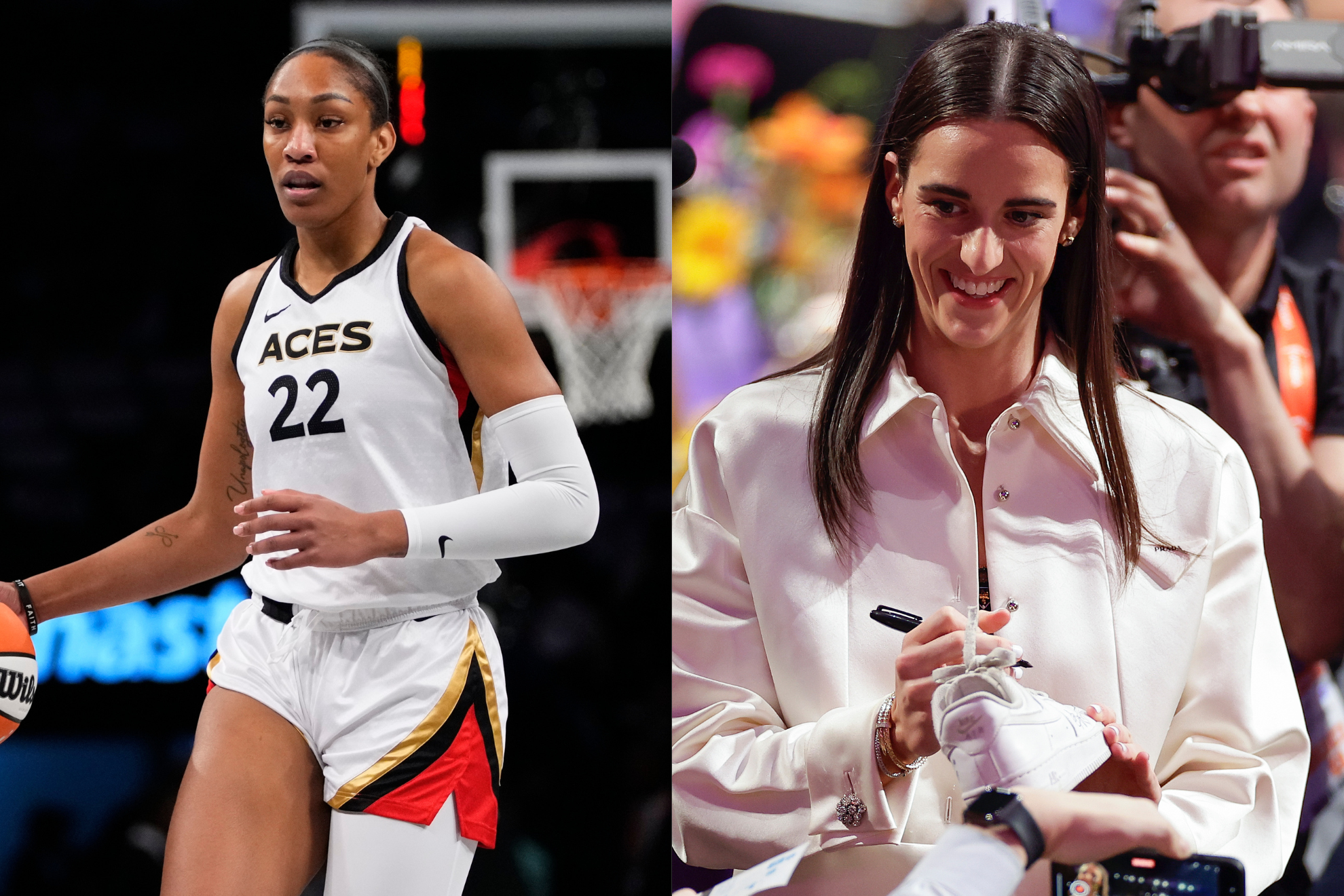
Whether it’s Sha’Carri Richardson’s statue installation or a captivating ad for Whoop along with Nike, it has sparked another deliberation for Nike and put it under fire.
This time around, though, it’s also brought another furtive figure into the mix. None other than A’ja Wilson herself.
Concurrently, an Indiana Fever star Caitlin Clark is on the verge of signing a lucrative eight-figure shoe deal with Nike. Is Nike’s ad starring Sha’Carri sparking a storm of debates on athlete respect, while Clark’s shoe release adds a fresh twist to the controversy?
The recent debate sparked on Twitter for Nike brand after Caitlin Clark, an Indiana Fever star, is all set to sign an eight-figure deal with Nike, along with her own signature shoe.
Recently, a user posted about the truth for Las Vegas Aces star A’ja Wilson regarding Nike on his X handle with the caption, “A’ja Wilson not having a signature shoe is bullshit.” Wilson is a WNBA star with back-to-back championships, three MVP awards, an NCAA title at South Carolina, and an Olympic gold medal.
A’ja Wilson, a dominant force in basketball and author of “Dear Black Girls,” lacks a signature shoe deal despite her accomplishments.
After this DMVCoop301 showed his anger and voiced his sentiment about Nike doing Richardson dirty, “They doing after the fact shit wit ShaCarri too smh.” A fan, outraged, commented on Nike’s non inclusion policies for black women, stating, “Nike doesn’t exactly have a great history of treating black women well, if their name isn’t Serena Williams.”
Next, Nike’s controversial moves have been a topic of discussion recently, especially in light of their advertisement featuring Sha’Carri Richardson and the release of Caitlin Clark’s new shoe line. This shoe deal is anticipated to include Caitlin Clark receiving her own signature Nike shoe, following in the footsteps of WNBA stars Sabrina Ionescu and Elena Delle Donne.
Nike has also proudly unveiled three magnificent statues, each honoring sports icons: LeBron James, Sha’Carri Richardson, and Kylian Mbappé, standing tall in the heart of the city. This has sparked another debate when Nike faced criticism for not including track and field legend Shelly-Ann Fraser-Pryce in the lineup. Again, Sha’Carri Richardson and their shared sponsor, Nike, featured in a captivating ad for Whoop, a renowned tech brand known for its innovative wearable devices.
Fans drew parallels between Sha’Carri Richardson’s viral ad for Whoop and a legendary 2023 ad for Richard Mille, the Swiss luxury watchmaking brand, featuring Jamaica’s sprint sensation Shelly-Ann Fraser-Pryce.
A fan on X platform noted a clear distinction between the videos and speculated that Whoop intentionally created the similarity to generate controversy and attention. Another topic for fire is Nike’s 2024 Paris Summer Olympics track uniforms for women, particularly the high-cut bikini line unitard, which sparked significant dissent and ongoing uproar.
Citius Mag’s revelation of Team USA’s 2024 Paris Olympics outfits, particularly the high-cut leotard design for women, sparked controversy and unintentionally elicited a humorous response from former athletes and fans.
Top athletes, including Sha’Carri Richardson, showed support for Nike’s uniforms, presenting a united front despite initial backlash. Athletes such as Tara Davis-Woodhall and Lauren Fleshman openly rejected the uniforms. Dwayne Johnson, a prominent figure in entertainment and sports, strongly opposed Nike’s attire choice for Team USA.
These incidents have reignited debates about respect towards legends and the company’s marketing decisions. As the discussions continue, Nike faces the challenge of balancing innovation and creativity with inclusivity, especially when representing iconic figures in sports.
News
PHOTO: Hanna Cavinder, worth $924,000 NIL, wears an all-denim ensemble at the Miami Grand Prix in 2024. tt
PHOTO: $924,000 NIL-valued Hanna Cavinder show off an all-denim outfit for Miami Grand Prix 2024 Hanna and Haley Cavinder attended Miami Grand Prix 2024. Hanna Cavinder and…
Luka Doncic’s mother during the Mavericks-Clippers playoff game caught everyone’s attention with her exquisite ensemble. tt
Luka Doncic’s Mom Was Turning Heads With Her Stunning Outfit At Mavericks-Clippers Playoff Game Luka Doncic mother (Photo via Mirjam Poterbin/Instagram) Luka Doncic’s parents, Mirjam Poterbin and…
In an explosive Netflix documentary, Tim Donaghy exposed Michael Jordan, Phil Jackson, and the NBA (VIDEO) tt
Tim Donaghy Exposed The NBA, Phil Jackson, & Michael Jordan During Explosive Netflix Documentary (VIDEO) The name Tim Donaghy will forever be connected to the NBA as some fans…
During a rant, Kanye West shockingly claims that Michael Jordan’s father was “sacrificed” to the Illuminati (VIDEO) tt
Kanye West Makes Shocking Claim That Michael Jordan’s Dad Was ‘Sacrificed’ To The Illuminati During Rant (VIDEO) Kanye West has lost a lot of deals and a ton…
Details Of Michael Jordan’s Prenuptial Agreement With Current Wife Yvette Prietto Are Revealed in a New Report. tt
New Report Uncovers The Details Of Michael Jordan’s Prenup With Current Wife Yvette Prietto After going through a massive divorce in the past, NBA Great Michael Jordan apparently has a prenup…
“I Feel Bad for Michael”: Charles Barkley Gives His Take on Marcus Jordan’s Messy Affair With Larsa Pippen. tt
“I Feel Bad for Michael”: Charles Barkley Gives His Take on Marcus Jordan’s Messy Affair With Larsa Pippen Charles Barkley, Michael Jordan, Larsa Pippen and Marcus Jordan…
End of content
No more pages to load
